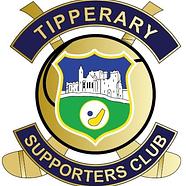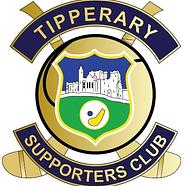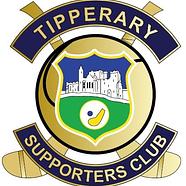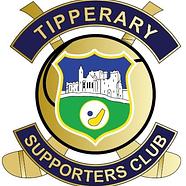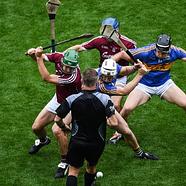The family of the late GAA player Dillon Quirke have launched a charity in his name
In the last moments of Dillon Quirke’s life, the Tipperary hurler kept a promise to his mother, Hazel.
Two weeks before he collapsed and died while playing for his club Clonoulty-Rossmore at Semple Stadium in Thurles, he had told her that sometimes he had “little moments”.
He would experience a dizzy spell, then minutes later he would feel “perfect”.
Hazel had made Dillon promise if he ever felt like that while on the pitch, he would stop playing.
And so on the evening of August 5 last, while captaining his team against Kilruane MacDonaghs in a county senior championship game, the 24-year-old reached out to his best friend Craig Morgan, who he was marking.
“Craig, tell the ref to stop. I’m going to faint.”
Those were his last words.
On the sidelines Hazel, Dillon’s father Dan and his older sister Shannon, a trained medic, saw that something was terribly wrong.
Sprinting to his side, Shannon checked for a pulse and called an ambulance. Dillon’s parents watched in shock and prayed as a team of people tried to save his life.
They were still in the stadium when they realised he was gone. Hazel remembers seeing Dillon’s fingers turning blue and knowing in her heart that her son wasn’t coming back.
Today the family sit around the kitchen table at their home in Rossmore, Cashel. Dillon’s younger sister Kellie is here too. She was in America when she got the call. Making it was “the hardest part of that day”, Dan says.
Christmas is coming but Dan says he just wants it “to be over”. Outside, amid the frost covering the countryside, the only splash of colour is in the club flags proudly flying from gardens.
Dillon’s father, an All-Ireland medal winner at Under-21 level, says hurling is life in these parts.
“From the minute you’re born, your dad will give you a hurl and you carry it with you everywhere you go from the age of two or three,” he said. “Hurling is everything. Everything else — even religion — is secondary. It was the same for me as it was for Dillon. And it’s been like that for generations.”
Shannon says she never saw her father cry until the day his son starred for Clonoulty-Rossmore in a surprise victory over Nenagh Éire Óg in the 2018 county final.
“You have seen me cry plenty since,” says Dan.
Dillon’s death made national headlines. He had given several interviews about his health before he died. In 2020, he described how he was happy with his prognosis after seemingly overcoming a heart virus called myocarditis, which was diagnosed in 2019.
He was born six weeks early. Hazel was driving to work when she was involved in a head-on collision and she was thrown through the windscreen. She broke her leg and went into premature labour.
Despite being born at 34 weeks, Dylan was still “as strong as an ox”, Shannon says.
He grew to be his mother’s pet, his father’s best friend and the life and soul of the house.
His family has been comforted by videos of his antics — Dillon pretending he has seen a mouse and his mother jumping in the air, arm-wrestling his father and planting a kiss on the top of his head after beating him. In every video there is joy.
“Do you know, we never had one row with Dillon in 24 years,” says Hazel.
Dan chokes up: “I never had a bad word with my son.”
Shannon recalls her younger brother driving her home from a nightclub during the summer when she was upset. He tucked her into bed and left her with a glass of water.
There is a video of a neighbour, a man in his 80s who lives alone, dancing with Dillon at the family’s summer barbecue. It was Dillon who invited him.
It was 2018 when Dillon collapsed for the first time. He was leaving work when he called his mother to say he wasn’t feeling well. Later that night, at home, he collapsed after complaining that his forehead was “on fire”.
An ambulance arrived within 20 minutes. “I thought we were going to lose him,” says Hazel — but by the time the family had reached the hospital Dillon was alert and “talking about hurling”.
After a series of tests, and another collapse in hospital, he was diagnosed with myocarditis. For six months he was shattered. He gradually started training again, but for the next few years he would pick up “everything going”, including glandular fever and shingles.
“If he went out for a night with the boys you could be sure he would get tonsillitis or something the next day,” says Hazel.
“The signs would come and go and he would be fine — to a point,” Dan says. “He thought he was fine, and we thought he was fine. He was playing with Tipperary and they were keeping him checked every six months — and he felt great, apart from feeling tired.”
In 2018 doctors were confident he would make a full recovery. “The cardiac specialists are absolutely baffled,” Hazel says. “They don’t understand what happened. Now we think he never fully recovered from the myocarditis.”
Did he worry about his health?
Dan: “He didn’t worry.”
Kellie: “He was easy breezy.”
Hazel: “Dillon thought he was invincible.”
Shannon: “If you’d seen him go out the door that Friday... he was the picture of health. He was buzzing.”
He had an MRI scan the day before the match — he was dead by the time the results came back. Dan was called in by doctors to be told of the findings.
The inquest has yet to take place and the family stress they have been guided by medical opinions given to them.
“The electrics in his heart were destroyed,” says Dan, referring to scar tissue.
“If Dillon had lived, he’d have been told by doctors when the results came back that he could never play sport again.”
Kellie: “Which would have killed him altogether. He wouldn’t have been able to go out for a jog or go to the gym — and he loved all that.”
Dan: “It would have been a horrible lifestyle for him.”
Hazel took some comfort from the fact that Dillon was never told he couldn’t hurl again. “He would always be wondering if he was on borrowed time. Every time he walked out that door he would wonder if this was his last day. And he could have died anywhere.
“So I think God did this the best way he could. My mother died three and a half years ago [shortly before Dillon collapsed for the first time] and I often think: ‘Why didn’t Dillon go that night?’ I feel God spared us the pain for three and a half years — and in that time Dillon enjoyed and accomplished so much. And then he went the way he would have loved to have gone.”
Kellie: “He died a legend, playing the sport he loved.”
Shannon: “When it happened, we were all asking ‘Why?’ and ‘How could we have prevented it?’ and ‘What could we have done?’ But then I feel, when we got the results, we couldn’t have done anything. There was no preventing it.”
The day before Dillon played his last game he told his mother: “I am never going to give up hurling.”
At the kitchen table, four months later, she looks me in the eye and says: “Niamh, if we took the hurling off Dillon, his spirit was gone.
“He would not be Dillon. We were told adrenaline is probably what kicked Dillon over the edge — and he could have got that adrenaline sitting down watching his teammates play.”
Shannon agrees.
“If any of us had ever thought for a split-second that there was any chance of this happening, we’d have stopped him. You never think this will happen in a million years. I work in healthcare, and you never think it’s going be your family,” she says.
Hazel recalls her last words to Dillon as he went out the door, telling him to stop playing if he felt in any way unwell.
“He looked at me and he said ‘Bye, bye, Mammy’ with a big smile on his face. He wasn’t listening to me — and that was the last time I saw him until I ran across the field.”
Dan: “He will always be young in our eyes now.”
Though it’s heart-breaking, Dillon’s family don’t want people to feel sad.
“If you’d told me 12 months ago that I was going to lose one of my kids, I’d think I wouldn’t be able to live another day. But I feel him around me all the time,” says Hazel.
She recalls a woman who lost her three-year-old child.
“She said: ‘You will think it’s unbearable now — but you will be able to laugh and smile again and have a happy life.’ To me they were fantastic words.; I know Dillon is gone, but I feel him more with me now than ever. And I don’t know where we are getting our strength from.”
Dan agrees: “Dillon wouldn’t want us to be sad. He would want us to move on. He didn’t have any time for negativity. We had 24 brilliant years.”
The family are launching the Dillon Quirke Foundation. There will be a fundraiser when Tipperary play Kilkenny on Sunday, February 19, with proceeds going towards screening all GAA players from the age of 12 in every club in the country.
“If we can save one life it would make it for us,” says Dan. “It is also about making parents aware about adrenaline – because we weren’t aware.”
Dillon’s father also questions the level of training GAA players endure.
“The barriers are being pushed with kids more and more. Maybe even too much.
“Kids are training harder, running faster and lifting more weights — and who knows what damage it’s doing to the heart? That’s the truth. It has reached a whole new level over the last 10 years, and where is it going to finish?”
Players in professional sports “are monitored a lot more”, Kellie says.
Dan: “Because they have money.”
Dillon’s mother takes me through the living room, out the door and into a large open field, where people queued for more than three hours to pay their respects.
The family was moved and the whole community lifted by that show of togetherness, she says.
“Dillon lived his life to the full,” says Shannon. “It was always about quality over quantity.”
To donate, visit the Dillon Quirke Foundation GoFundMe page or give via bank account IBAN IE51AIBK93530136581059 (sort code 93-53-01, A/c no. 36581059 )
 Dillon Quirke’s family: parents Hazel and Dan, and sisters Shannon (left) and Kellie. Picture by Mark Condren
Dillon Quirke’s family: parents Hazel and Dan, and sisters Shannon (left) and Kellie. Picture by Mark Condren

